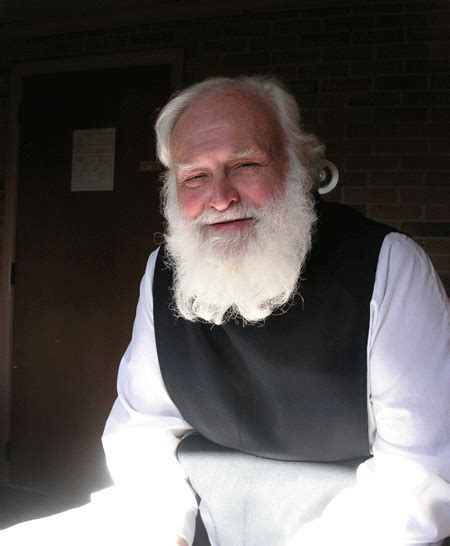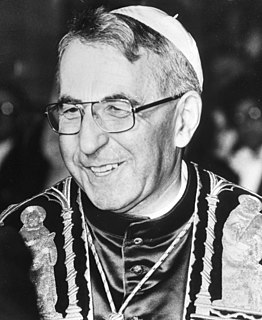A Quote by Aiden Wilson Tozer
Any objection to the carryings on of our present gold-calf Christianity is met with the triumphant reply, ‘But we are winning them!’ Winning them to what? To true discipleship? To cross-carrying? To self-denial? To separation from the world? To crucifixion of the flesh? To holy living? To hard self-discipline ? To love for God? To total committal to Christ? Of course the answer to all these questions is...No.
Related Quotes
Discipleship means adherence to Christ and, because Christ is the object of that adherence, it must take the form of discipleship. An abstract theology, a doctrinal system, a general religious knowledge of the subject of grace or the forgiveness of sins, render discipleship superfluous, and in fact exclude any idea of discipleship whatsoever, and are essentially inimical to the whole conception of following Christ....Christianity without the living Christ is inevitably Christianity without discipleship, and Christianity without discipleship is always Christianity without Christ.
With an abstract idea it is possible to enter into a relation of formal knowledge, to become enthusiastic about it, and perhaps even to put it into practice; but it can never be followed in personal obedience. Christianity without the living Christ is inevitably Christianity without discipleship, and Christianity without discipleship is always Christianity without Christ.
Most of us love a non-self, or something extrinsic and apart from our inner life; but a mother's love during the time she is a flesh-and-blood ciborium is not for a non-self but for one that is her very self, a perfect example of charity and love which hardly perceives a separation. Motherhood then becomes a kind of priesthood. She brings God to man by preparing the flesh in which the soul will be implanted; she brings man to God in offering the child back again to the Creator.
The earthly form of Christ is the form that died on the cross. The image of God is the image of Christ crucified. It is to this image that the life of the disciples must be conformed; in other words, they must be conformed to his death (Phil 3.10, Rom 6.4) The Christian life is a life of crucifixion (Gal 2.19) In baptism the form of Christ's death is impressed upon his own. They are dead to the flesh and to sin, they are dead to the world, and the world is dead to them (Gal 6.14). Anybody living in the strength of Christ's baptism lives in the strength of Christ's death.
If there is no element of asceticism in our lives, if we give free rein to the desires of the flesh (taking care of course to keep within the limits of what seems permissible to the world), we shall find it hard to train for the service of Christ. When the flesh is satisfied it is hard to pray with cheerfulness or to devote oneself to a life of service which calls for much self-renunciation.
And just as He appeared before the holy Apostles in true flesh, so now He has us see Him in the Sacred Bread. Looking at Him with the eyes of their flesh, they saw only His Flesh, but regarding Him with the eyes of the spirit, they believed that He was God. In like manner, as we see bread and wine with our bodily eyes, let us see and believe firmly that it is His Most Holy Body and Blood, True and Living.For in this way our Lord is ever present among those who believe in him, according to what He said: "Behold, I am with you all days even to the consummation of the world."
The priestly vocation is essentially a call to sanctity, in the form that derives from the Sacrament of Holy Orders. Sanctity is intimacy with God; it is the imitation of Christ, poor, chaste and humble; it is unreserved love for souls and self-giving to their true good; it is love for the church which is holy and wants us to be holy, because such is the mission that Christ has entrusted to it. Each one of you must be holy also in order to help your brothers pursue their vocation to sanctity.
In our own lives, having a mind-set of expecting to win increases our odds of winning. It helps us get better results. And better results help us increase our credibility and self-confidence, which leads to more positive self-expectancy, and more winning - and the upward cycle continues. It becomes a self-fulfilling prophecy.
If any man would come after me, let him deny himself." The disciple must say to himself the same words Peter said of Christ when he denied him: "I know not this man." Self-denial is never just a series of isolated acts of mortification or asceticism. It is not suicide, for there is an element of self-will even in that. To deny oneself is to be aware only of Christ and no more of self, to see only him who goes before and no more the road which is too hard for us. Once more, all that self denial can say is: "He leads the way, keep close to him.
At the cross in holy love God through Christ paid the full penalty of our disobedience himself. He bore the judgment we deserve in order to bring us the forgiveness we do not deserve. On the cross divine mercy and justice were equally expressed and eternally reconciled. God's holy love was 'satisfied.'

































